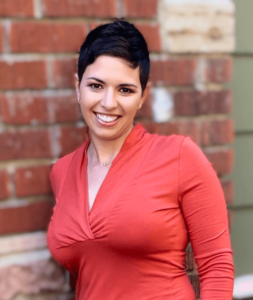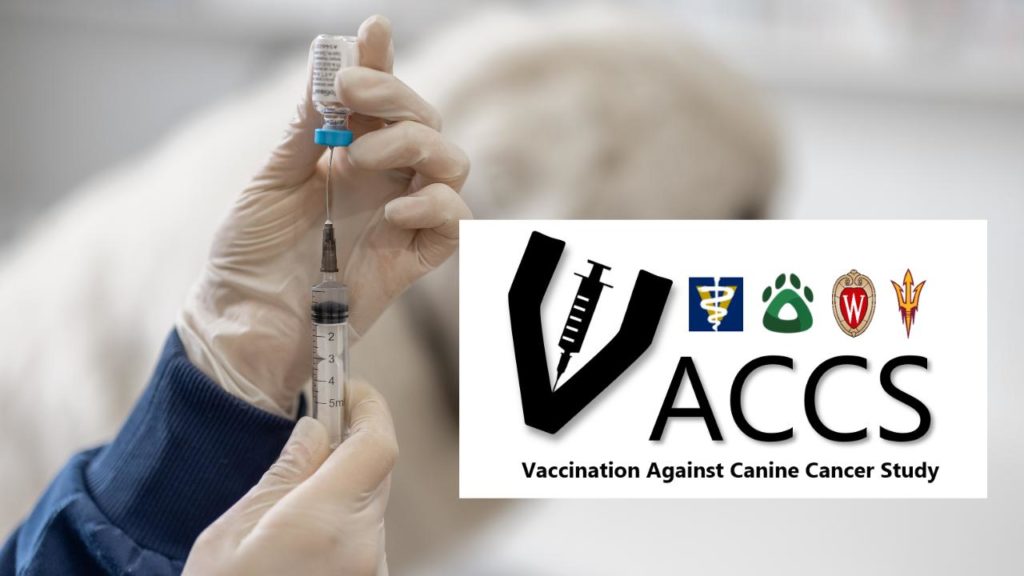EPISODE 120 | RELEASED May 10, 2021
Clinical Trials for Dog Cancer | Dr. Trina Hazzah Deep Dive
Alecia updates us on her dog’s vaccine trial, and it sparks a Deep Dive discussion with Dr. Trina Hazzah. A must-listen if you are considering enrolling in a clinical trial!
SHOW NOTES
There are multiple clinical trials going on for dogs with cancer right now. Are they worth enrolling in? What if you don’t live near a big university? How do you start researching clinical trials?
What should you ask your veterinarian? What should you ask the researchers? What are the things you need to know you would never think to ask?
Dr. Trina Hazzah, an integrative oncologist in the Los Angeles area, dishes the dirt on clinical trials. A fascinating and enlightening episode.
Links Mentioned in Today’s Show:
- Here is the link to the VACCS (Vaccination Against Canine Cancer Study) trial she participated in: StudyPages – VACCS: Vaccination Against Canine Cancer Study
- Veterinary Cancer Society: Veterinary Cancer Society | VCS (vetcancersociety.org)
- American College of Veterinary Internal Medicine: Home (acvim.org)
- American Holistic Veterinary Medical Association: American Holistic Veterinary Medical Association – The Leader, the Voice, the Resource for integrative holistic veterinary medicine (ahvma.org)
- The Veterinary Cannabis Society https://veterinarycannabissociety.org/ or https://vcs.pet
>> Dr. Trina Hazzah: [00:00:00] Remember, clinical trials are brand new. This is like experimental type therapy. And so you’re going in realizing that, okay, they’ve given you the list of potential side effects, but guess what? There can be one that’s not on that list that occurs, and they’re learning from your pet, too.
>> Announcer: [00:00:22] Welcome to Dog Cancer Answers, where we help you help your dog with cancer. Here’s your host James Jacobson.
>> James Jacobson: [00:00:30] Hello friend, today, we are doing a Deep Dive into everything clinical trials. How can you find one? What do you need to know ahead of time? And what kinds of questions should you ask before you enroll your dog? To dive in with us, we are joined by Dr. Trina Hazzah, an integrative oncologist who practices just outside of Los Angeles.
Dr. Trina Hazzah. Thanks for being with us today.
>> Dr. Trina Hazzah: [00:00:58] Thank you for having me.
>> James Jacobson: [00:00:59] This is kind of an interesting episode, because I want to go into this area of getting free veterinary care for your dog with cancer, by enrolling them in a clinical trial. The idea behind this episode really all started when we got a call from one of our listeners, uh, back in spring of 2019, Alecia in Denver who had some questions about a vaccine trial that was being done there. And she decided to enroll her dog, and she was glad she did. Let’s listen to her update that she gave us.
>> Alecia: [00:01:33] Yes. My name is Alecia and I am calling from Denver, Colorado. I have more of a comment. I had called your show over a year ago, just asking about vaccine trials to prevent cancer, as there were several starting up, then. I got a mixed bag from you, and understandably, cause who knows if they work or don’t. At any rate, I decided to enroll my eight year old Scottie.
She was accepted and after exams and, um, ultrasound, blood work, et cetera. And she received her first series of injections. Placebo, the real vaccine, who knows. Double blind study. At any rate, she handled it well and no side effects. Six months later, the same thing, we returned, they did all the rechecking and she had a booster.
I recently went back after about eight months this time because of COVID, everything was behind, and they did her blood work, ultrasound, etc. again. And they found mast cell cancer. And she was immediately referred for surgery and they think they got most of it, which is great. After that, she started on chemo.
She is getting eight doses of Vinblastine, she has already had seven. She will have her last one next week, and they will do a follow-up ultrasound to see if the cancer is all clear at this point. I just want to say I have no regrets enrolling her as I believe they caught the cancer, possibly earlier than my regular vet may have. CSU also covered the entire cost of the surgery, which really, really helped out a lot.
And I just want to give a big shout out to CSU and Dr. Sam, as their entire staff was great. Needless to say, I’m no longer in the study, but hopefully it was caught and we resolved it early, with very early intervention. So I just wanted to comment on that. Thank you very much.
>> James Jacobson: [00:03:27] Okay. So Dr. Hazzah, what do you think about that?
What do you think about the idea of, you know, basically, she was able to get more veterinary care and discover this new tumor as a result of being enrolled in this trial.
>> Dr. Trina Hazzah: [00:03:44] Oh, I think it’s great. I think that, that she was able to enroll and then she had all this followup, right. She had to get routine blood work and ultrasounds and things like that, post-trial, and that’s kind of how this all popped up, right. Is that she was already enrolled. And then after that, during the routine kind of what they call staging test, they noticed this mast cell tumor. I mean, what a blessing in a way, right? Because without being enrolled and having to go in and follow up like that, it may not have been found, or it may have been found months and months later, and it could have been more problematic at that point.
So, no, I thought it was a really nice story to hear. And I think CSU is a phenomenal vet school. So. Yeah, I think it all really worked out for her and her pup because they were able to kind of catch things early.
>> James Jacobson: [00:04:31] Is it common for dogs to develop other tumors after clinical trial participation?
>> Dr. Trina Hazzah: [00:04:36] No, not necessarily.
Unfortunately, there’s just a risk of cancer in general in older dogs. Right. It’s greater than 50% of dogs over the age of 10 develop cancer. And so I think that, if her Scottie was placed on a cancer trial, it would just going to happen anyway. Right? Just the timing of it. I think it was just, again, I called it a blessing for her to be able to go back in just for routine checkups after the trial.
And then they found this, would depend on what the trial is. If you are doing certain therapies or certain radiation treatments, there are some risks that some of the therapeutics that we use in veterinary oncology can increase the risk of certain cancers, but I have never heard of a dog getting a secondary cancer from a clinical trial.
>> James Jacobson: [00:05:21] OK, so it’s not causal, but it’s just that, unfortunately that’s what happens to dogs. They get a cancer, and luckily in this case, it was caught. She mentions an interesting point, which I imagine must be frustrating for anyone who’s participating in clinical trials. I don’t know if I’m getting the placebo or not..
>> Dr. Trina Hazzah: [00:05:38] Mmmm. Yeah, no, it’s tough.
>> James Jacobson: [00:05:40] How do you assuage a dog lover or even a person that they’re doing something good when they don’t really know if it is.
>> Dr. Trina Hazzah: [00:05:47] I think it’s tough. I think you’re doing it for the greater good too, right? I mean, I think the same thing for people, right? You do what you can and you say, look, I hope that I get the actual drug or I hope my pet gets the actual drug, but when you go into a double-blinded placebo controlled trial, you don’t know.
Right. And the thing was, she said, I think also, was that her dog didn’t get sick. Right. Did great. That doesn’t mean that your dog didn’t get the drug either. Right? Maybe your dog wasn’t going to get sick from the drug. So I think you have to think about it like that, is number one, usually these trials are fully funded.
Right. And, they are, most cases, you’re not paying for very much, other than the pretrial tests are oftentimes something that the owners have to pay for. Not always even. So cost-wise sometimes you kind of weigh your risk and your benefits and say, look, it’s not going to cost me for a very expensive drug.
Right. And so I’m going to take the 50/50 chance and roll the dice and hope that my pet gets it. And if my pet doesn’t get it, I know that I’ve enrolled my dog in this trial for the greater good, so it can help many other dogs in the future.
>> James Jacobson: [00:06:54] And the types of veterinarians and veterinary care that a dog gets at someplace like CSU, talk about that.
>> Dr. Trina Hazzah: [00:07:02] Well, I think that it would be similar to the large private practice institutions, too. Right. The ones that have, you have a variety of different specialists, right? So there’s that aspect. So you go into oncology and, your dog also has a limp. And the medical oncologist says geez, I’m really an oncologist.
I don’t know. This is me speaking, basically. I don’t know anything about orthopedic disease. Let me just call my surgeon and see if they can take a look. Oh my God, thank God they came down because they found the limp was actually even associated with the cancer. The cancer had spread. Or the limp had nothing to do with the cancer, it was just your dog’s getting older and has arthritis, but they come up with some really great ways of treating it. Or even better, I went down the hallway and I spoke to the rehab specialist who evaluated the dog and did some acupuncture. And so you get this kind of all-inclusive type of treatment, which I think you get at a lot of universities as well as private practices.
The benefit, I think you get at some of the universities too, is that they’re on the cutting edge of a lot of these clinical trials, right? They get funding in different ways. They’ve written grants. There’s certainly a research aspect to universities, right? Compared to the kind of the common private practice. You may get the full well-rounded multiple specialty approach at a private practice.
But the clinical trial aspect and the research aspect is usually a little bit less. Does not mean it doesn’t exist. We absolutely have clinical trials at our hospital, but usually it comes from, you know, a higher up structure that we are then supporting a clinical trial, versus starting it and doing it primarily at our facility.
>> James Jacobson: [00:08:44] Well, so if you’re not near a major university, how would you find out about, for example, whatever trials that you had done through your hospital, how would someone learn about that?
>> Dr. Trina Hazzah: [00:08:53] It’s a great question. We get that a lot where pet owners have tried to do a variety of different treatments in their pet, and they’re like, are there just any clinical trials, I don’t want to stop yet?
And oftentimes what we do is we recommend they go to some of the sites like Veterinary Cancer Society, VCS, is an organization that has most of the veterinary oncologists in the country as members, over 400, that are members, that will then plug in which clinical trials are available. And so they can go there.
Also ACVIM, which is the college of internal medicine. Under that college is oncology and there, you can have a list of all the oncologists. That are ACVIM, a board certified oncologist, and what trials might exist there. So that would be another good site. So I think both of those sites would be good.
And also just asking your veterinarian, ask your local veterinarian, asked your oncologist, Hey, have you heard of this trial? And a lot of times, we’re honest. If I’ve heard of a trial, there was a trial for a osteosarcoma vaccine, for instance. And there were a few of my patients that had gone through the trial and, honestly, none of them did very well, and they got really sick. And so after doing some research, I realized that if the dogs were properly tested, their actual tumor was properly tested, for this specific mutation and they were positive for the mutation, then the trial would be more advantageous for that particular dog. Versus if they were negative for that mutation, honestly, it was not worth putting their dog through a trial that the dog would get really sick because I don’t think it was gonna work.
>> James Jacobson: [00:10:27] And that’s not built into the trial?
>> Dr. Trina Hazzah: [00:10:29] It’s not, it’s not.
>> James Jacobson: [00:10:31] Why is that as a clinician, as a researcher or someone who’s sort of a geek and all this, why is that not built into it?
>> Dr. Trina Hazzah: [00:10:37] I don’t know. I mean, it would be up to the people that were running the trial and put it together and did the trial design initially. And I think maybe they were looking for a lot of factors, right. Maybe they didn’t know at that time that the dogs that were negative wouldn’t respond. Right. Maybe they just, in their mind, they thought maybe they wouldn’t respond to as well, but there might be a chance.
Now a lot of these dogs had spread of their cancer and there wasn’t a lot to do for them. And so I always like to think that everyone’s going into this for the right reason. Right. And I think that I’m sure they didn’t know it until enough dogs went through to realize, Hey, there might be something here.
>> James Jacobson: [00:11:10] Okay. Let’s put a pin in it right here so that we can take a quick break. And when we come back, I want to pick up with a question that I have about the study that Alicia put her dog in, we will be right back.
So, our caller, Alecia, enrolled in this trial, that’s called the Vaccination Against Canine Cancer Study, and I think it’s still ongoing. What do you think of the idea of a vaccine to prevent cancer?
>> Dr. Trina Hazzah: [00:11:39] I mean, this idea sounds phenomenal.
>> James Jacobson: [00:11:42] OK.
>> Dr. Trina Hazzah: [00:11:42] Um, like, like almost like an HPV type vaccine for a dog. Right. I would say love it.
Like that sounds like a wonderful idea. The main vaccine that we use in veterinary oncology is a treatment vaccine. And that is the melanoma vaccine, which is a xenogeneic vaccine that has been around, God, for a while. And that when we think of vaccine and immunotherapy, we think of that. There are certainly other vaccines where people have taken, you know, parts of a dog’s tumor ground it up and given it back to try to elicit an immune response. That has been used for a variety of different cancers and have been published and presented at our annual VCS meetings, and to be honest with you, I have never been very excited about those, because they’ve not given the results that I would have loved to see. A true improvement. I think we all get excited about the idea of immunotherapy working and really eliciting that immune response, where the body can say, Hey. This isn’t normal.
I’m going to kill you, which is exactly what’s supposed to happen, right. That surveillance system. But for whatever reason, the vaccines that have been put out there so far that are that type of what they call a allogeneic type vaccine, right, where
>> James Jacobson: [00:12:51] Allogeneic, meaning,
>> Dr. Trina Hazzah: [00:12:53] That means from a different, so a different patient or a different species or what they call an autologous vaccine, which is where they take your dog’s actual tumor, your dog’s actual tumor, grind it up and give it back to your dog to elicit an immune response.
That’s more of the autogenic. Either of those, I’ve not seen as much success as I would’ve liked to see, but I think there’s certainly still a place for it. It’s just, there needs to be a lot more research in that category.
>> James Jacobson: [00:13:18] And what are your thoughts about going this route because you really can’t afford standard of care.
You can’t afford, you know, the thousands of dollars that it costs to treat your dog’s cancer. What are your thoughts about, okay, well, my dog has cancer. I can’t afford it, but I will enroll them in this study.
>> Dr. Trina Hazzah: [00:13:38] No brainer. I mean, I think if you’re okay, taking your dog in and going through the whole inconvenience part of it, and your dog has a personality where you can drop it off at a, vet school or a facility and leave them there for a full day or however long it’s going to be.
I mean, these are all factors you have to think about, right, when deciding. But say you had the, let’s call it the happy Labrador that will take treats from anyone. And, you know, would basically leave you for the neighbor or the person that you don’t even know, cause they have a hot dog in their hand, right?
Like, the lab that we all love dearly. Like if that’s your dog, why not? If you want to do everything you can, and especially being on the cutting edge and helping other animals and your dog’s personality, you know, allows for it, right. There’s a reason why cat trials don’t exist as much as dog trials because cats will come back and pee on your bed.
Right? Like they’re too smart. They’re just like, you know what you did to me, I’m going to let you remember this for the rest of your life. Right. So, And the rest of my life, they just are aren’t they? And I love them, both trust me, as I think my cat’s sitting behind me right now. But I think that I have to say that. Because I really believe that you have to, it’s almost like you have to ask your dog, right?
Like, how would you feel about this? Right. I know it sounds crazy, but you know your dog best. And so having that conversation with your dog about, how are you going to feel about being in a facility for a week or for a few days or for a day? And then again, next week, and for the next six weeks. My dog has a very aggressive cancer, it’s not going to live for more than a few months, I think it’s well worth doing this. And my dog doesn’t care about going to the vet, easy-peasy decision. If it’s a cancer that can be easily cured with a surgery, perhaps finding maybe a local spot near you that can do discount surgeries, and so you’re not having to then bring your dog far away and enroll, right?
So like kind of weighing, again, it goes back to weighing kind of the risk versus the benefit and finding what fits best for your family and your pet.
>> James Jacobson: [00:15:36] Other than leaving Scruffy at the institution when this is being done and maybe going back and forth, what are some other considerations that are not so obvious when you’re looking at a clinical trial?
>> Dr. Trina Hazzah: [00:15:47] That’s a good question. I think there’s a few. Your dog may never get the actual treatment if it’s a placebo, right? So if there’s a placebo available, then there’s the chance that you do all of this and they don’t get it, which we’ve spoken about, which is a major bummer sometimes. And then I think a very big one would be the potential for side effects.
Remember, clinical trials are brand new. This is like, experimental type therapy. And so you’re going in realizing that, okay, they’ve given you the list of potential side effects, but guess what? There can be one that’s not on that list that occurs and their learning from your pet, too. And so when you go in, it’s going back to the greater good as like, I’m going to go in and know that there could be some side effects and my pet could be really sick. And questions to maybe ask would be something like if my pet got sick, would the trial cover hospitalization? Right? Cause if we can’t afford certain therapeutic options, then hospitalizing a pet is exceedingly expensive.
And so making sure you ask those types of questions. What if my pet doesn’t do well? Do I have the option, to disenroll. Right. Do I have the option to leave this trial? Or am I stuck here? Right? These are good questions to ask because if they say, Nope, you’re stuck. They keep getting sick. I mean, I don’t know.
I mean, you just never know. I there’s so many different trials
>> James Jacobson: [00:17:10] Talk about this process of trial design, because that’s something that, did you ever have to do that in, through your training?
>> Dr. Trina Hazzah: [00:17:16] You know, it’s funny, I’ve worked on many clinical trials, and I started to do a little bit of a design for a really cool one with actually, curcumin.
And then it didn’t end up panning out for the hospital that I was working, that I’m actually still at. So I have never actually gone through a full study design on my own because, all of my education, other than vet school has been at a private practice. So I kind of on purpose picked private practice because my skillset is really clinical medicine. Working in a clinic and seeing patients and relating to clients and, you know, and kind of going in that way and not the research perspective.
So I’ve never even been, even in vet school, I wasn’t really excited about research. It just wasn’t my jam. However, clinical trials. Look, I’ve been part of many. Currently, I’m at a, I think it’s probably now the largest veterinary hospital West of the Mississippi. I mean, it’s a huge hospital. It’s a flagship VCA hospital and they have several clinical trials in all different departments and that’s something we are proud of as a private practice.
You know, we follow the rules. We make sure that they don’t have any factors that wouldn’t allow them to be enrolled. All the consent forms are filled out. We go over them very carefully with the pet parents. Um, A really interesting clinical trial that I’ve been part of is actually a hemangiosarcoma clinical trial, which is a very common tumor of the spleen as, well, that’s a very common place for this type of tumor. It’s a cancer of the blood vessels, very aggressive cancer. And we were actually using just herbal therapy as a treatment. So they would have surgery. Get the diagnosis, but instead of doing chemo or targeted therapies we’ve discussed already, they would actually say, Oh, I’m not interested in chemo.
I just want to do herbs. And so we would put together this herbal protocol that was set for every patient that would enroll in this trial. It was a really fascinating trial because you get people from all over that are interested in really going more of the holistic route, and are not interested in the standard of care.
>> James Jacobson: [00:19:21] Okay. Now, how do you find that about those? Cause I imagine, you mentioned ACVIM and VCS, and I imagine you can’t find out about these herbal, you know, trials. Can you? Or is that in another place?
>> Dr. Trina Hazzah: [00:19:35] Um, I don’t know. I wonder if VCS might have it because you know, the woman that is, that started the trial and, and is the head of the trial, she is a veterinary oncologist as well as an integrative veterinary oncologist. So she is certainly part of VCS and part of ACVIM. But there’s also the AHVMA, which is basically the holistic right veterinary medical association. They also have a website and I would bet that if you went there and you ask them questions or you look, they may even have trials available there. And it was presented at a few meetings, so you inform the veterinarians. I think that’s part of it too, right, is just saying, even to general vets, Hey guys, this exists. So if you have pet parents that don’t want to go the full course or are thinking not even to do surgery because they don’t want to do chemo, just tell them if they want to do surgery, this other option is available.
>> James Jacobson: [00:20:25] I’m a big believer in follow the money. I got to understand how clinical trials would be done and designed and paid for, when it’s a, a non patented pharmaceutical. How does that work?
>> Dr. Trina Hazzah: [00:20:37] I mean, I’m kind of thinking through this. I think that the pharmaceutical companies that have most of the, these drugs that we’re talking about, like actual drugs or vaccines, most of these are made by pharmaceutical companies.
And so they support a lot of the cost for, you know, they subsidize most of the costs for the tests, and for the drug and things like that. Yeah. Because the truth is that, I mean, clearly it benefits the company. If a trial can prove that their drug is efficacious for a particular cancer, especially a cancer that is so difficult to treat, it’s a no-brainer.
Right. I mean, they would benefit.
>> James Jacobson: [00:21:16] That makes sense. But I was trying to pose that question, in terms of the clinical trial, you were just explaining
>> Dr. Trina Hazzah: [00:21:21] Oh, for the herbs
>> James Jacobson: [00:21:22] the herbs. Like, there’s not a lot of patented medicine. There’s not a lot of … I mean, who’s sponsoring that trial?
>> Dr. Trina Hazzah: [00:21:28] Some of the herbal companies.
>> James Jacobson: [00:21:29] OK
>> Dr. Trina Hazzah: [00:21:29] The ones that are actually making the herbal formulations. So they can custom make herbal formulations for a specific disease process.
There was in this particular trial, vitamin D was part of it. And so the company that makes vitamin D and actually tests vitamin D levels. They supplied all of the vitamin D tests as well as the actual vitamin D drops. So we had a lot of kind of donations from the herbal companies and vitamin D. Mushrooms, also from the herbal companies.
So I think that, I will say it, I think holistic medicine is just a little different. It’s very like, inclusive,
>> James Jacobson: [00:22:06] Mmhm.
>> Dr. Trina Hazzah: [00:22:07] Right, we all are like this big team of, let’s just try to find what works and let’s share. Let’s share with everybody. Right. A little different sometimes when it comes to pharmaceuticals, right.
>> James Jacobson: [00:22:17] Yeah, it’s very different. So. That might be an option too, like an herbal trial, which you could find by going to one of those societies that you mentioned, AHVMA or VCS, et cetera. We’ll make sure to put a link to those groups in today’s show notes, but basically, if you can’t afford veterinary care for your dog and you can avail yourself of one of these trials, you say, go for it.
>> Dr. Trina Hazzah: [00:22:43] Again, you weigh your risks and your benefits, and then you go with what feels right. And what’s a good fit for you and your pet, right? I mean, a lot of times what I say is there is no right or wrong. You have to go what feels right. And you have to pick the decision that you regret the least. Meaning that, you go forward with a trial and God forbid your pet gets so sick from the drug. And maybe doesn’t even make it. Do you kick yourself and say, you wish you never did it? Or do you say, I knew this was a risk, I went forward because I wanted to give my dog the best chance. And this is what I thought would give my dog the best chance.
And at the end of the day, I helped other dogs doing this. Right. And if the answer is no, I’d never forgive myself, then you don’t do the trial.
>> James Jacobson: [00:23:21] No regrets, basically.
>> Dr. Trina Hazzah: [00:23:23] Yeah. Or least amount of regrets, I guess. Yeah.
>> James Jacobson: [00:23:26] Dr. Trina Hazzah, I never have a regret when you’re with us. I’m so grateful. Thank you so much for being with us again.
>> Dr. Trina Hazzah: [00:23:32] Thank you.
>> James Jacobson: [00:23:34] We’re going to take a quick break to pay some bills. Then we’re going to talk a little bit about how to avoid regrets by calculating risk. There’s a pretty simple formula I use, that’ll help you make decisions, not just in how to help your dog, but perhaps, in every other area of your life. I’ll tell you about that on the other side of this break. We’ll be right back.
We are back. And as promised, here is a simple formula to use when deciding whether to pursue a particular treatment or not. Ask yourself this question. What do I stand to gain by saying yes, if this works out the way I hope it will. And then ask yourself. What do I stand to lose if I say yes and it doesn’t work out.
In other words, what is the best case scenario, if you say yes. And what is the worst case scenario, if you say yes. To make your decision, compare the two scenarios, and if you stand to gain more than you stand to lose well, then, say yes. And if you stand to lose more then you stand to gain then say no. There is a good article on this, on Dog Cancer Blog, so be sure to check that out. We are going to put a link to that article in today’s show notes with a lot more details on this. You can find the show notes either in your podcast app or on our website at DogCancerAnswers.com. That’s also where you can find our entire back catalog of episodes.
Those touchstones, they are here to remind me, to remind you, to call into our Listener Line and leave a question for one of our veterinarians, just like Alecia did on today’s show. You can call (808) 868-3200 and leave a recording. That’s (808) 868-3200. It is a phone number here in the United States, so if you are listening to us from abroad, anywhere outside the United States, use the U.S. Country code + 1. And don’t forget to subscribe to our newsletter at DogCancerNews.com and join our private Dog Cancer Support group on Facebook.
The link is in the show notes and you can also get to it at DogCancerSupport.com. One last thing, before we wrap up. Please, do us a favor and click the subscribe or follow button on this podcast in your favorite podcast app or on YouTube. It can help us rise in the rankings, and that’s important because it can help more dog lovers who have a dog cancer diagnosis find us when they need us. And that is really what Dog Cancer Answers is all about. I’d like to thank Dr. Trina Hazzah for joining us today, and thanks to Alecia in Colorado for calling in with her update, because it sparked a really interesting conversation. I’m James Jacobson, and from all of us here at Dog Podcast Network, I wish you and your dog, a very warm Aloha.
>> Announcer: [00:27:07] Thank you for listening to Dog Cancer Answers. If you’d like to connect, please visit our website at DogCancerAnswers.com or call our Listener Line at (808) 868-3200. And here’s a friendly reminder that you probably already know: this podcast is provided for informational and educational purposes only.
It’s not meant to take the place of the advice you receive from your dog’s veterinarian. Only veterinarians who examine your dog can give you veterinary advice, or diagnose your dog’s medical condition. Your reliance on the information you hear on this podcast is solely at your own risk. If your dog has a specific health problem, contact your veterinarian. Also, please keep in mind that veterinary information can change rapidly. Therefore, some information may be out of date. Dog Cancer Answers is a presentation of Maui Media in association with Dog Podcast Network.
Hosted By
SUBSCRIBE ON YOUR FAVORITE PLATFORM
Topics
Editor's Picks
CATEGORY








